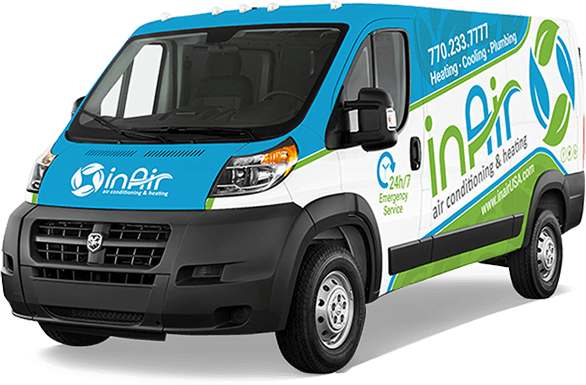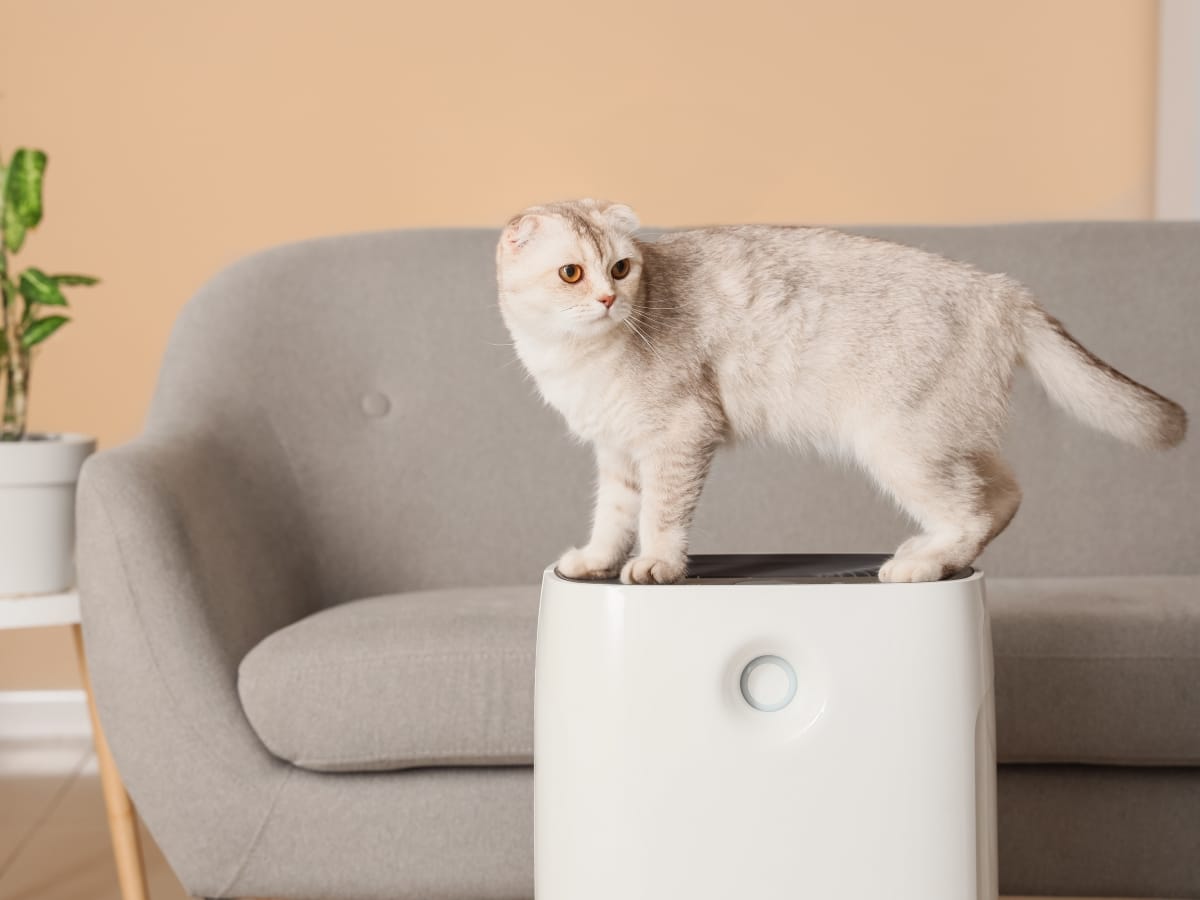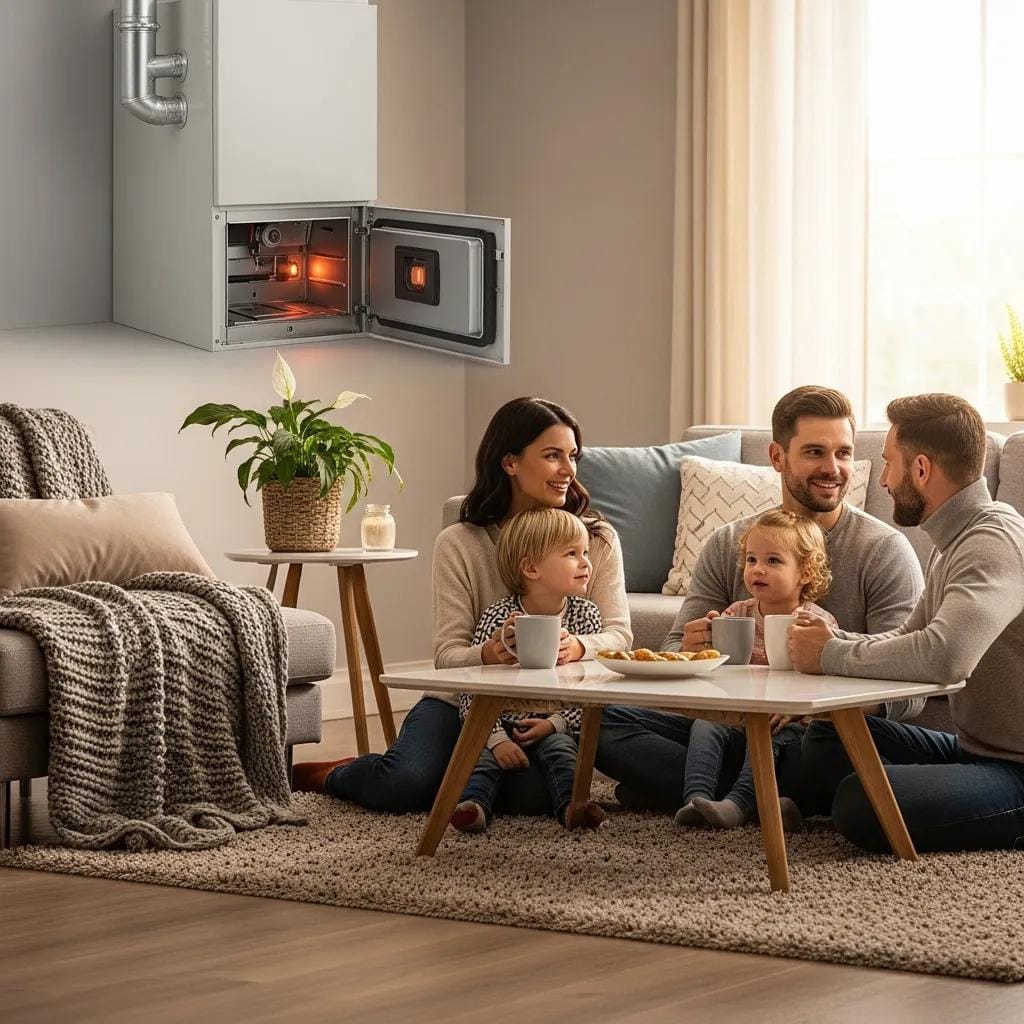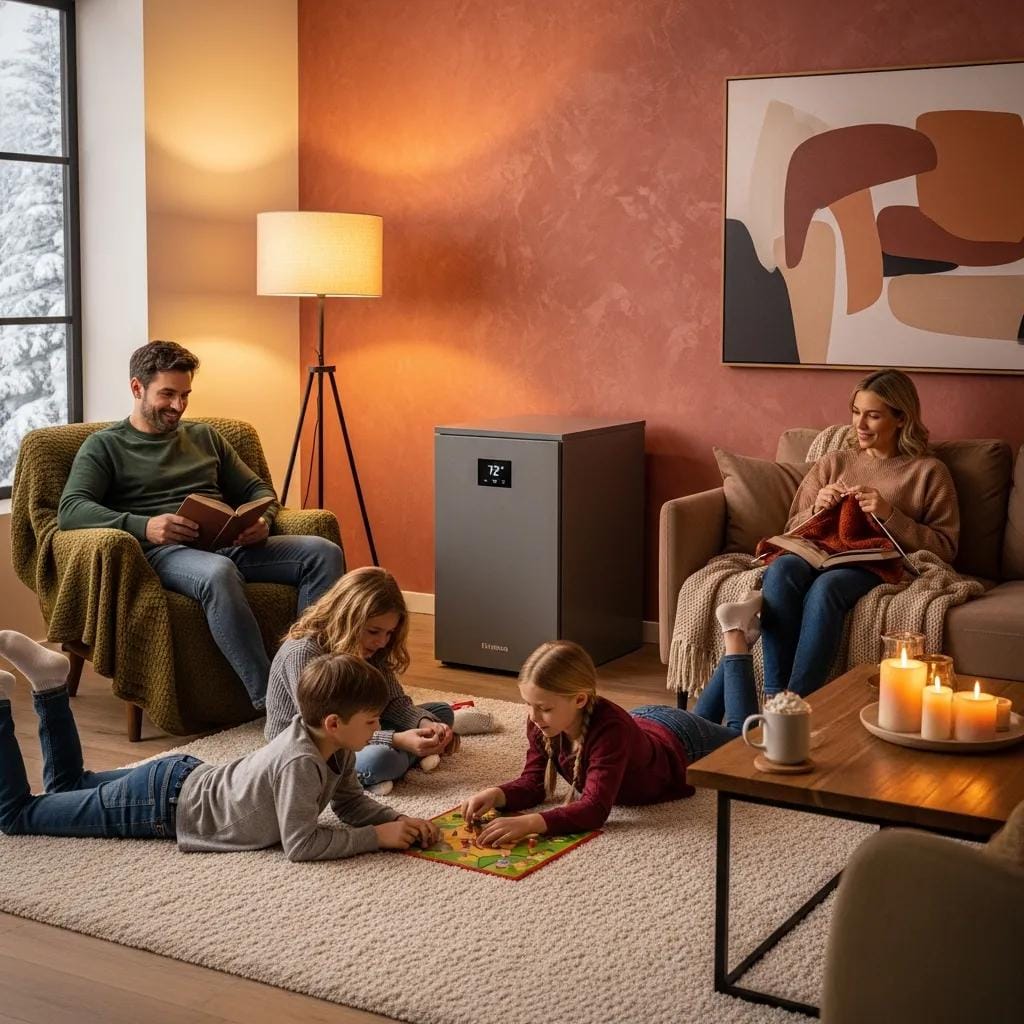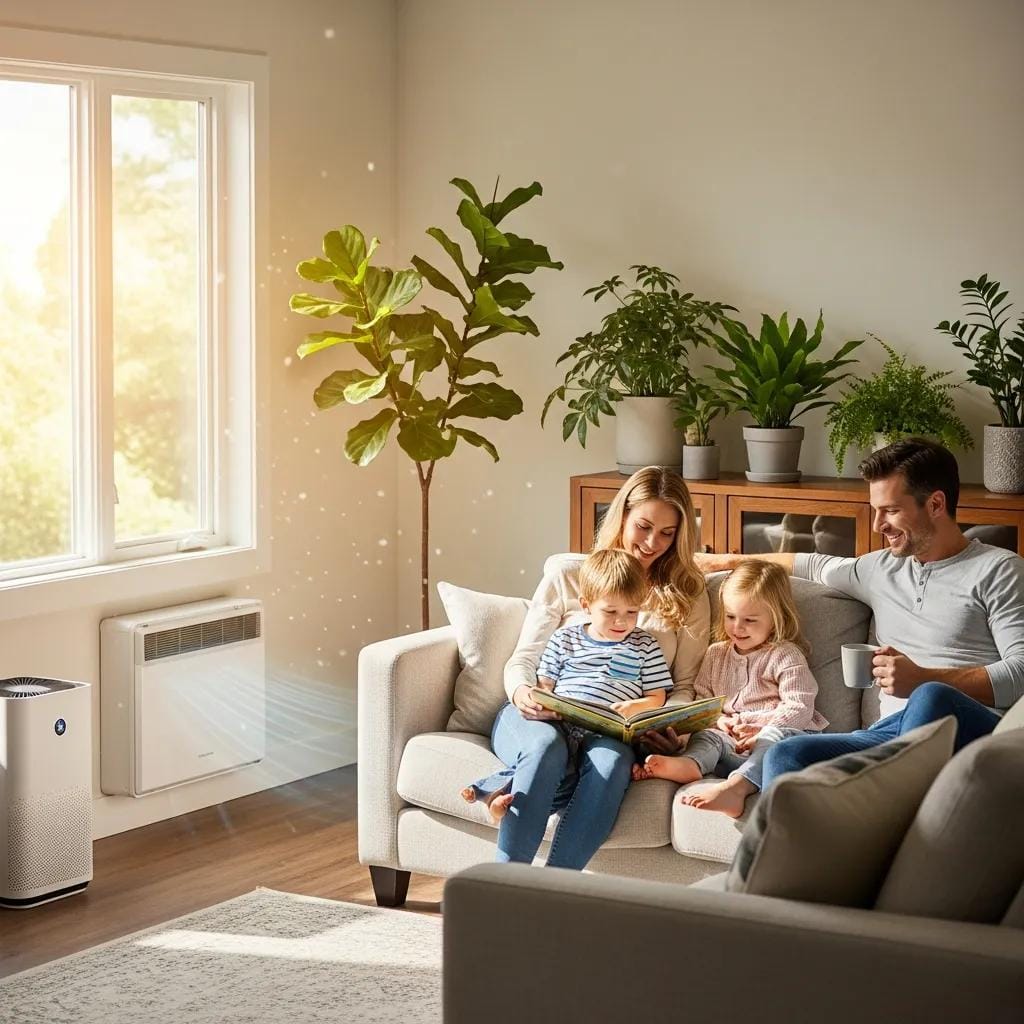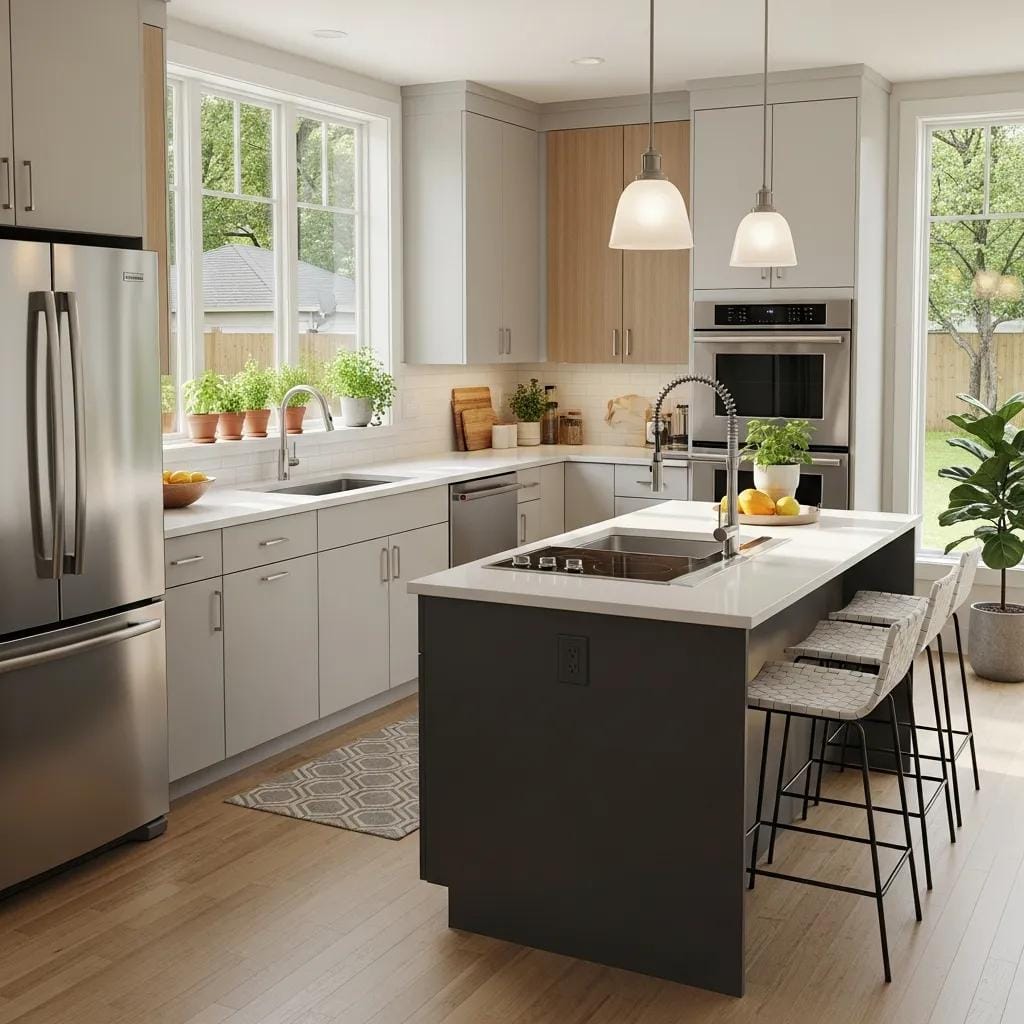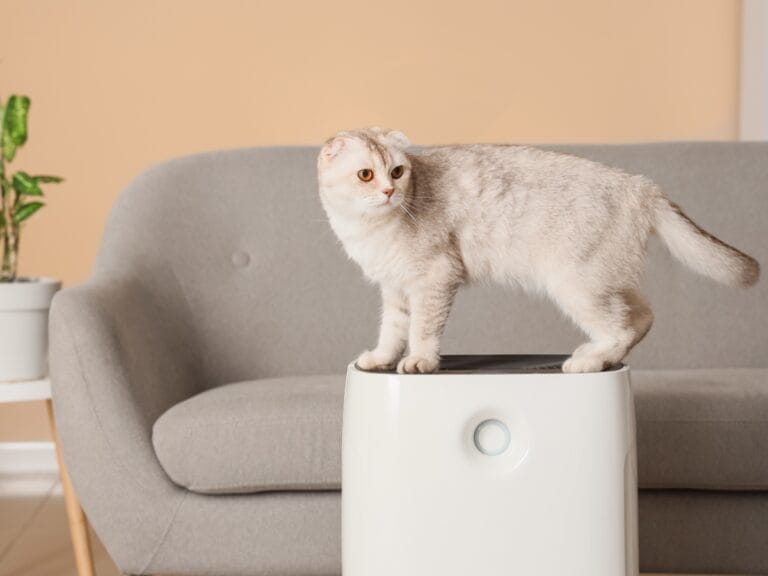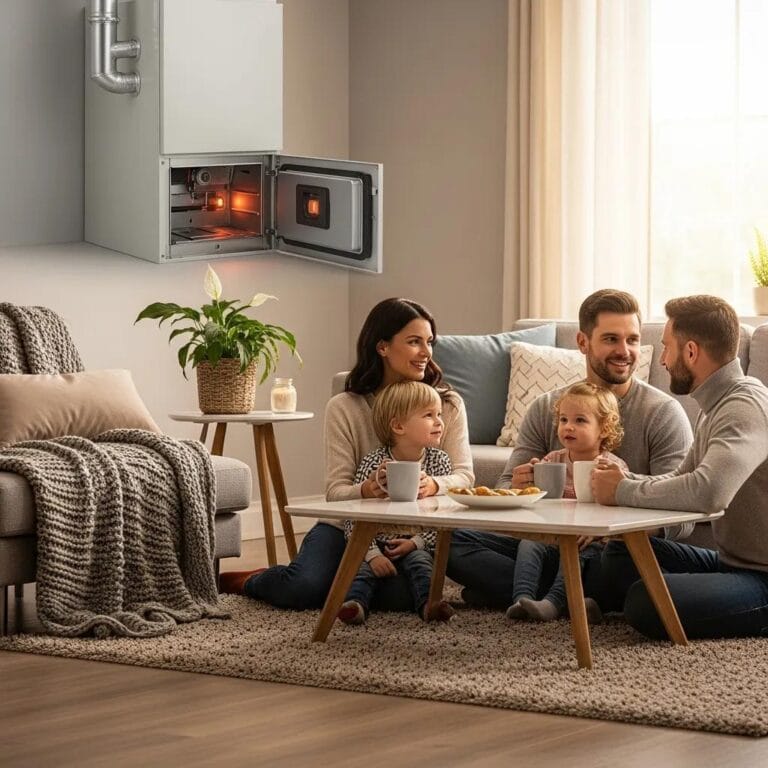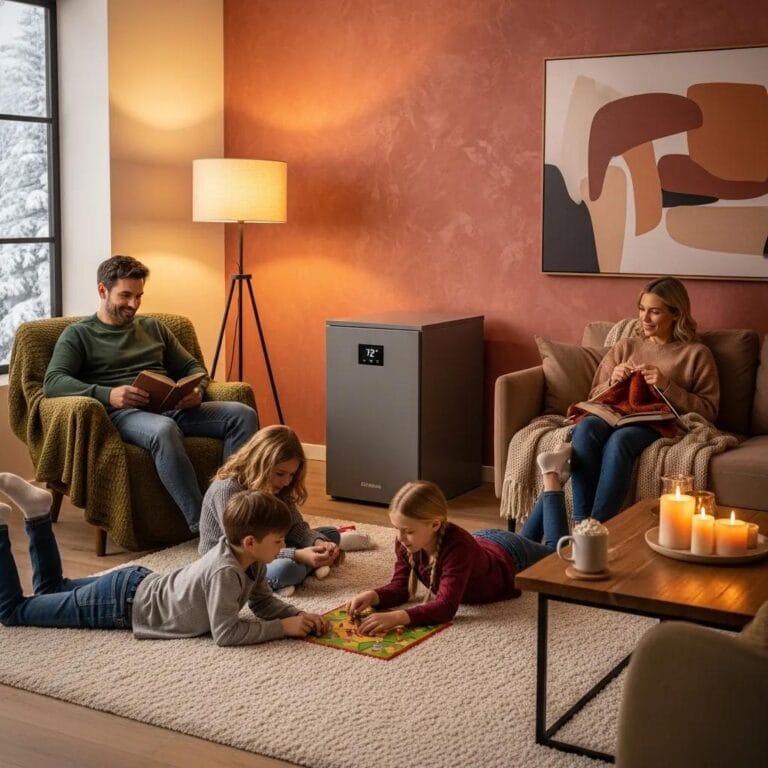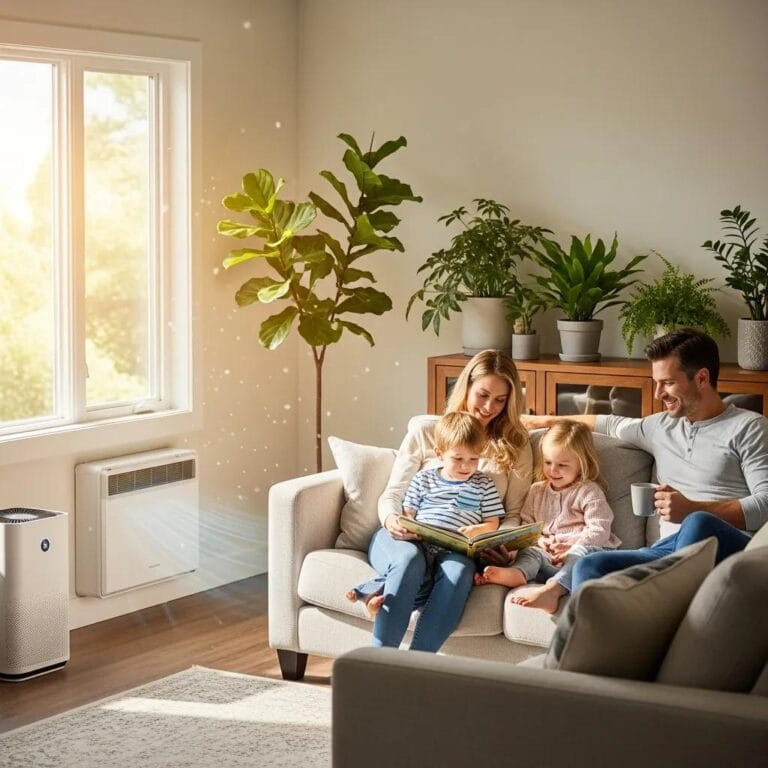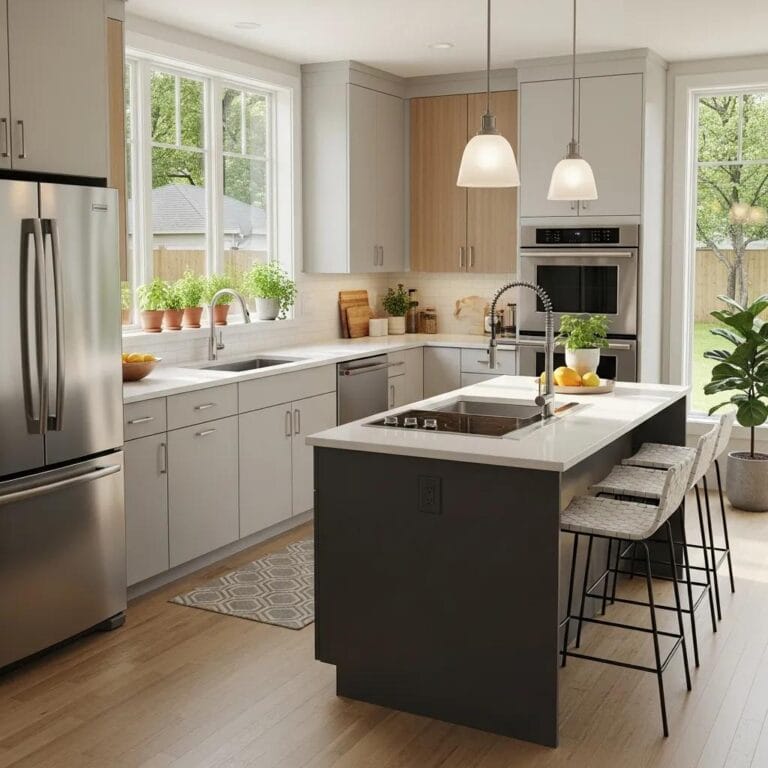In Georgia, shifting soil, seasonal storms, and aging infrastructure can all contribute to common plumbing issues that homeowners shouldn’t ignore. From clogged drains and low water pressure to burst pipes and sewer line backups, these problems can quickly escalate into costly repairs if left unchecked. Understanding the top plumbing problems that Georgia homes face—and how to prevent them—can save you time, money, and headaches down the line. In this article, we’ll explore the most frequent plumbing problems Georgia homeowners deal with and offer practical tips to keep your home’s plumbing running smoothly year-round.
Plumbing ProblemsGeorgia Homes Face That Could Cost You Big
What Are the Most Common Plumbing Problems Georgia Homeowners Face?
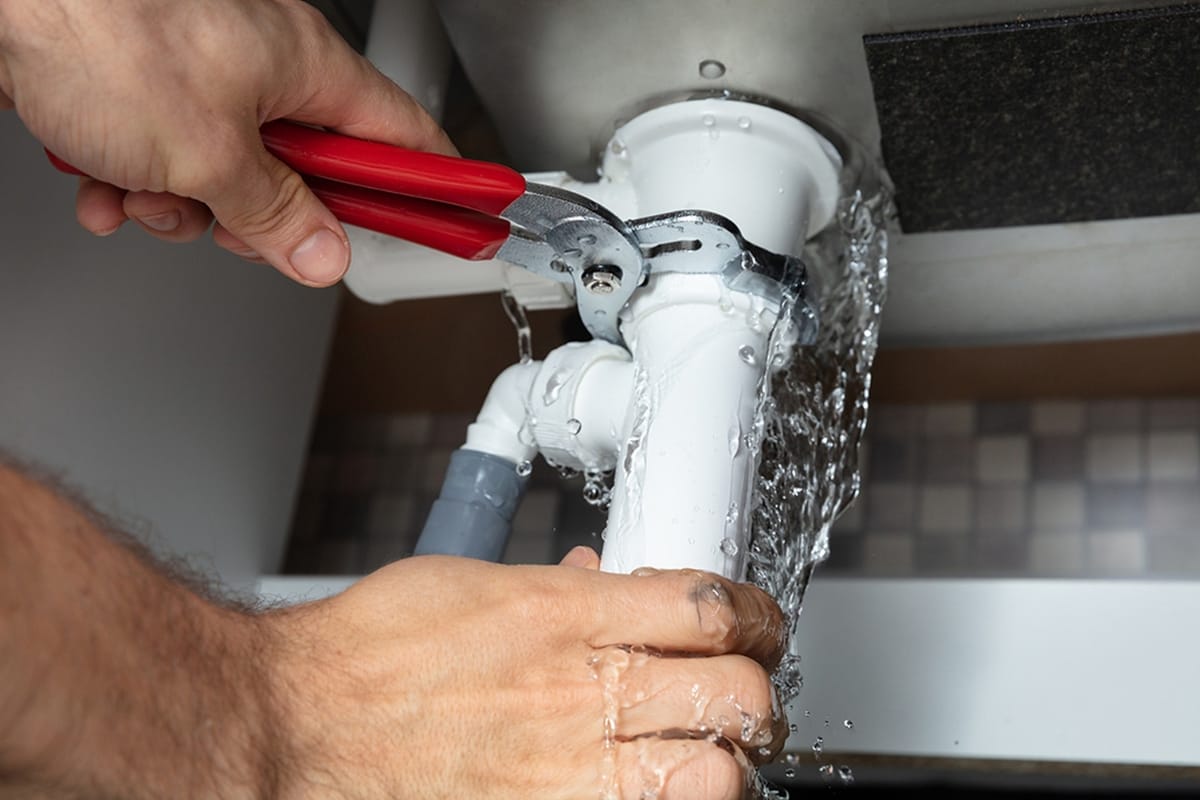
Georgia homes often deal with leaky faucets and pipes, clogged drains, water heater problems, and sewer line issues. Leaks waste water and damage properties, while clogged drains disrupt water flow and can create unsanitary conditions. Water heaters may suffer from sediment buildup and corrosion, resulting in inefficient performance or complete failure; financing options may help ease replacement costs. Sewer lines, challenged by heavy rainfall and aging systems, frequently experience root intrusion and blockages. Regular inspections, proper maintenance, and timely repairs are essential to keep these issues under control and avoid costly emergencies.
What Causes Leaky Faucets and Pipes in Georgia Homes?
Leaky faucets and pipes are primarily caused by aging and deteriorating plumbing systems. Decades-old copper or plastic pipes can corrode, leading to weakened seals and minor cracks. High waterpressure—often exceeding optimal ranges—strains fixtures and joints, worsening existing issues. Vibrations from nearby construction or traffic can also loosen fittings. Improper installations or the use of low-quality materials may result in premature failures. Temperature fluctuations cause pipes to expand and contract, further stressing connections. Regular inspections, the use of pressure regulators, and replacing worn parts with high-quality materials can minimize leaks.
How Do Clogged Drains Affect Georgia Plumbing Systems?
Clogged drains disrupt wastewater flow and may cause backups in sinks, bathtubs, and toilets. Dust, hair, grease, soap residue, and food particles accumulate over time and obstruct pipes. When drains are blocked, extra pressure is placed on the plumbing system, sometimes leading to warped pipes or further clogs in connected lines. Stagnant water left behind promotes the growth of bacteria and mold, posing health risks and yielding unpleasant odors. Preventative steps include installing drain strainers, proper disposal of grease and waste, and periodic flushing with hot water. In stubborn cases, professional drain cleaning, such as hydro-jetting, may be required.
What Are Typical Water Heater Problems in Georgia?
Water heaters in Georgia frequently struggle with sediment buildup and corrosion due to hard water high in minerals like calcium and magnesium. Sediment accumulates at the bottom of the tank, reducing heating efficiency and causing overheating. Corrosion from continuous water exposure can weaken the tank and lead to leaks. Inconsistent water temperatures, often from faulty thermostats or heating elements, further frustrate users. Pressure relief valves may fail because of sediment, risking dangerous pressure build-up and even tank rupture. Regular flushing, scheduled maintenance, and inspections help extend the lifespan of water heaters and ensure steady performance.
Why Are Sewer Line Issues Prevalent in Georgia?
Sewer line problems in Georgia stem from aging infrastructure and high rainfall. Old sewer systems are vulnerable to wear, and tree roots can infiltrate small cracks and expand blockages. Heavy rains overwhelm these outdated networks, causing backups and overflows that damage property and create health hazards. Corrosion further degrades sewer pipes, and improper disposal of non-biodegradable items worsens blockages. Routine inspections using video cameras and preventive cleaning methods like hydro-jetting are key to addressing these issues before they require extensive repairs.
How Does the Local Climate Influence Plumbing Problems Georgia Homes Face?
Georgia’s climate—with hot, humid summers and cool winters—places unique stresses on plumbing systems. Temperature fluctuations lead to expansion and contraction of pipes, often resulting in leaks and joint failures. High humidity accelerates corrosion and encourages mold and mildew growth, while heavy rains put extra burden on sewer lines, causing backups and flooding. Given these challenges, more frequent inspections, improved insulation, and regular maintenance are essential to keep plumbing systems functioning reliably throughout the year.
How Can You Detect and Fix Leaks Early in Georgia Homes?
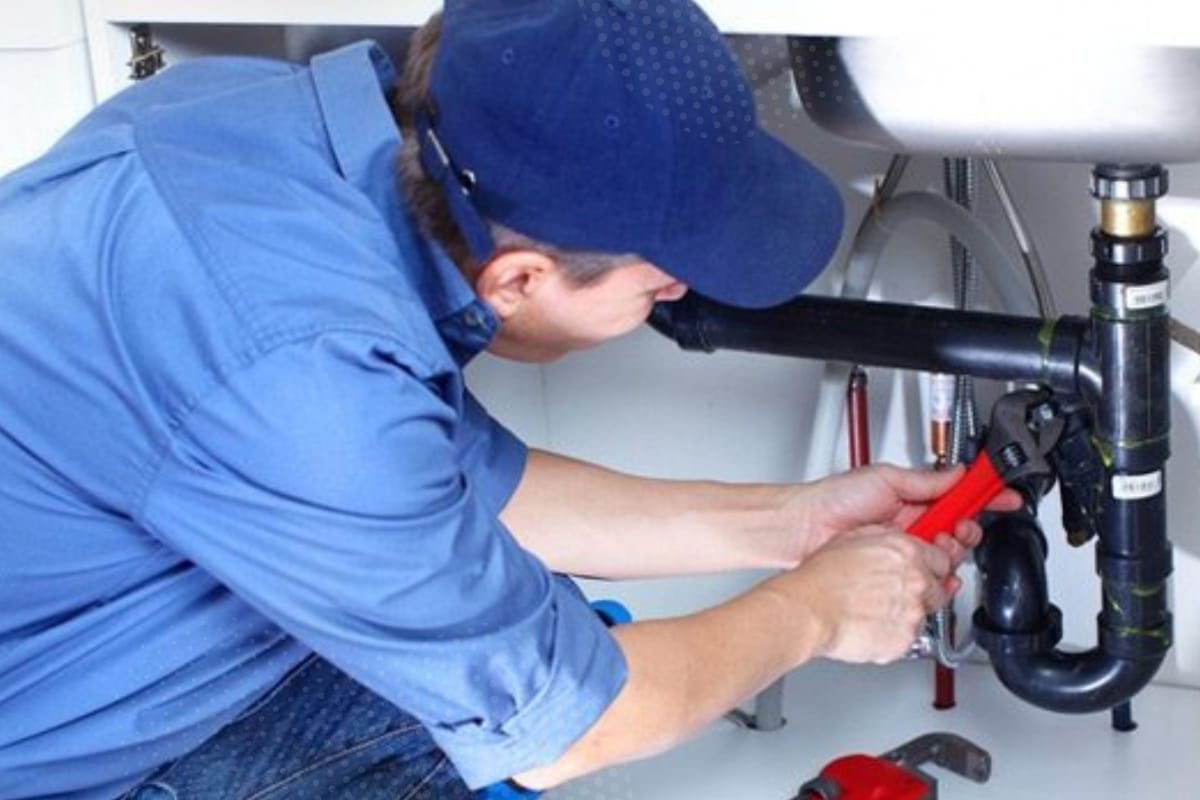
Early leak detection prevents costly water damage. Homeowners should look for signs such as damp spots on walls or ceilings, inexplicably high water bills, or the sound of running water when no fixtures are on. Inspect areas around sinks, water heaters, and appliance connections regularly. Simple tools like moisture meters and infrared cameras are helpful for detecting leaks hidden behind walls.
Once a leak is found, quick repairs—such as tightening fittings or replacing washers—can prevent further damage. For more serious problems like pipecorrosion or concealed leaks, professional plumbers should be called in. Routine inspections and pressure tests are key preventive measures, ensuring that minor leaks are caught and addressed before they become major issues.
What Are the Signs of Hidden WaterLeaks?
Hidden waterleaks are often revealed by unexplained staining, bubbling paint, warped surfaces, or persistent musty odors—especially in basements and under sinks. A sudden increase in water bills without any increase in usage is another warning sign. Sometimes, the sound of water running when everything is off may indicate that a leak is seeping through walls or under floors. Professional inspections using thermal imaging can accurately pinpoint these hidden issues.
Which Leak Detection Methods Work Best in Georgia?
Visual inspections are the simplest and most cost-effective method of leak detection. Homeowners should regularly check accessible pipes, water heaters, and fixtures for wet spots. For concealed leaks, advanced tools such as infrared cameras, electronic leak detectors, and moisture meters can offer more precise diagnosis. In multi-story homes, a water meter test—observing if the meter moves when all water is off—can indicate a leak. Often, combining these methods ensures the most comprehensive approach to leak detection.
When Should You Call a Professional Plumber for LeakRepairs?
While some minor leaks may be handled through DIY methods, professional help is crucial when leaks persist, cover large areas, or are difficult to access. If inspections reveal persistent dampness, water stains, or signs of mold—and if the water meter indicates ongoing usage with all fixtures off—it is time to call a professional plumber. Experts have advanced tools like thermal imaging and acoustic sensors to accurately locate difficult leaks and perform thorough repairs, ensuring lasting fixes and preventing further damage.
How Can Preventative Maintenance Help Avoid Leaks?
Regular preventative maintenance, including annual system inspections and pressure testing, helps catch small leaks before they escalate. Routine cleaning of fixtures and drains, along with timely replacement of worn-out parts, minimizes the risk of leaks. Installing pressure regulators and advanced leak detection systems further protects against unexpected water damage. A proactive maintenance schedule not only reduces water wastage and repair costs but also maintains the overall health of the plumbing system.
What Are Effective Solutions for Clogged Drains in Georgia?
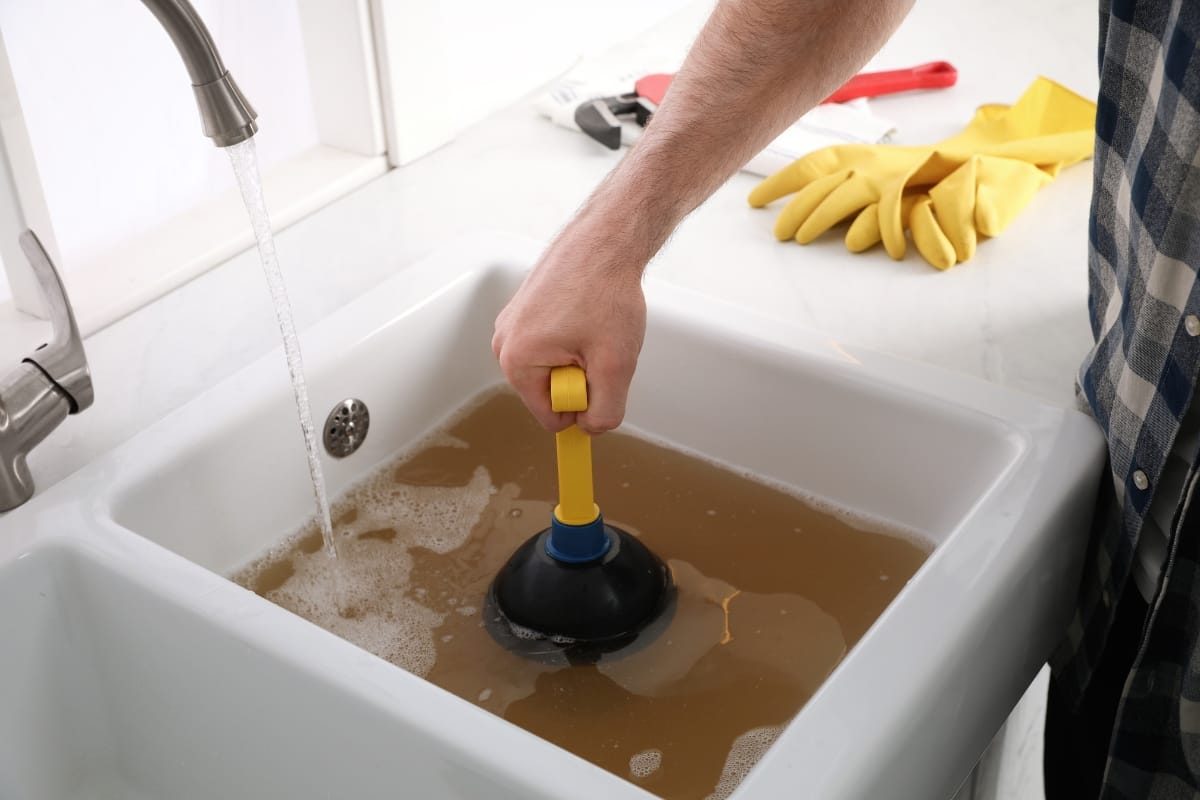
Clearing a clogged drain starts with understanding what’s blocking the flow. In homes across Georgia, the most common culprits are hair, grease, soap residue, and food scraps. For minor blockages, a plunger can often dislodge the obstruction by using simple suction. A drain snake or hand auger can reach further down the pipe to pull out or break up debris. Natural cleaning methods—such as pouring a cup of baking soda into the drain, following it with a cup of vinegar, and then flushing with boiling water—can dissolve light grease and soap buildup without the risks posed by harsh chemicals. For stubborn or deep clogs, professional-grade solutions like high-pressure water jetting blast away scale and debris, restoring full flow in minutes.
Common Causes of Drain Clogs in Georgia Homes
Georgia’s warm climate means higher humidity, which can accelerate soap scum formation on pipe walls. Hard water in many areas adds mineral deposits that seize onto grease and organic material, creating tough, sticky residues. In kitchens, fats and cooking oils poured down the sink cool and solidify, narrowing the pipe’s diameter over time. In bathrooms, hair mixes with soap particles to create stubborn tangles. Even small food bits that slip past garbage disposals or coffee grounds washed down the drain can accumulate into a sizable blockage. Regular attention to how household waste is discarded helps prevent these substances from building up.
Safe DIY Methods for Unclogging Drains
When a drain first begins to slow, homeowners can often clear it without calling in a technician. Start by sealing the drain with a plunger and working it up and down vigorously to break the seal. If this doesn’t restore flow, mix equal parts baking soda and table salt, pour the mixture into the drain, then follow with vinegar. After the fizzing subsides, rinse with a kettleful of boiling water. This combination cuts through light grease and loosens soft blockages. For deeper clogs, feed a flexible drain snake into the pipe until you feel resistance, then twist and pull back to extract the debris. Avoid chemical cleaners wherever possible: they can corrode older pipes and kill beneficial bacteria in septic systems.
When to Seek Professional Drain Cleaning
DIY methods work for most minor blockages, but recurring clogs or slow drains in multiple fixtures often signal a deeper problem. If plunging, snaking, or natural remedies fail to clear the line—or if foul odors and gurgling sounds persist—it’s time for professional intervention. Drain specialists use hydro-jetting equipment, which shoots water at up to 4,000 psi through pipes to remove grease, scale, and tree roots. Video camera inspections provide a view inside the plumbing to pinpoint fracture points, collapsed sections, or obstructions hidden beyond standard tools. Addressing these issues early helps avoid backups that can damage floors, walls, and major fixtures.
Preventative Maintenance to Keep Drains Clear
The best way to avoid expensive repairs is through routine care. Installing strainers over shower and sink drains catches hair, food particles, and debris before they enter the plumbing. Running a slow boil of water down kitchen drains each week helps wash away accumulating fats. Monthly treatments with enzyme-based cleaners break down organic matter without harming pipes or septic systems.
Educating household members to scrape plates into the trash, never pour grease into the sink, and limit coffee grounds to the compost can further reduce risks. Annual professional inspections add another layer of protection, allowing early detection of potential trouble spots. By combining these simple habits with prompt action at the first sign of a slowdown, Georgia homeowners can keep their drains flowing freely year-round.
How to Troubleshoot and Maintain Water Heaters in Georgia
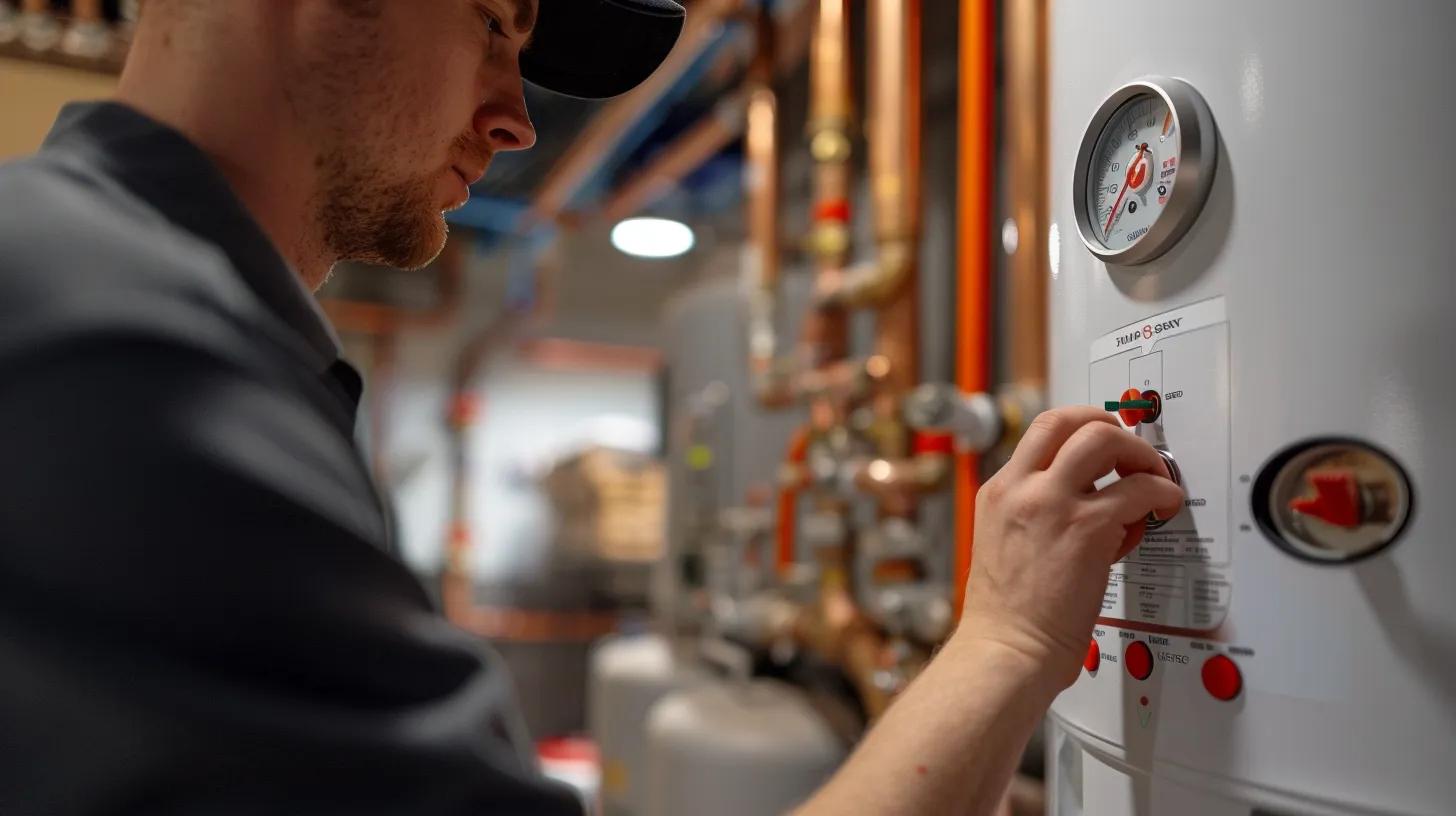
Water heater troubleshooting is vital for consistent hot water and avoiding expensive repairs. The most common issues include sediment buildup, which insulates the heating element, and corrosion wear that causes leaks. Regular flushing of the tank, at least once a year, along with periodic replacement of the anode rod, helps maintain efficiency. Monitoring the thermostat and pressure relief valve, and checking for unusual noises, can also indicate when maintenance is needed. If basic checks do not resolve problems, professional diagnostics are recommended.
What Are the Most Common Water Heater Problems?
The primary water heater issues in Georgia are sediment buildup, corrosion, malfunctioning thermostats, and failing pressure relief valves. Sediment accumulation reduces heating efficiency and can lead to overheating, while corrosion weakens the tank’s structure. Inadequate thermostats result in inconsistent water temperatures, and failing valves can cause dangerous pressure build-up.
How Do You Perform Basic Water Heater Troubleshooting?
Start by checking the power supply or fuel source; ensure the circuit breaker hasn’t tripped for electric models, and that the pilot light is lit for gas models. Use a multimeter to test heating elements and inspect for visible signs of sediment or corrosion. If sediment is found, drain and flush the tank. Visual checks around the water heater for leaks are also important. If these steps do not resolve the issue, professional help is needed.
When Should You Replace Your Water Heater?
Consider replacing a water heater when recurring leaks, sediment buildup, and efficiency losses persist despite regular maintenance. Water heaters typically last 8 to 12 years, but harsh conditions can shorten this span. Inconsistent water temperatures, persistent noises, or costly repairs are strong signals that replacement may be more economical in the long run.
What Maintenance Practices Extend Water Heater Lifespan?
Regular annual flushing to remove sediment along with timely replacement of the anode rod is key. Insulating the tank and hot water pipes helps maintain consistent temperature and efficiency. Routine inspections of the pressure relief valve and thermostat ensure that potential issues are caught early. These measures, combined with professional check-ups, greatly extend the life and efficiency of water heaters.
What Are the Signs and Solutions for Sewer Line Problems That Georgia Homes Face?
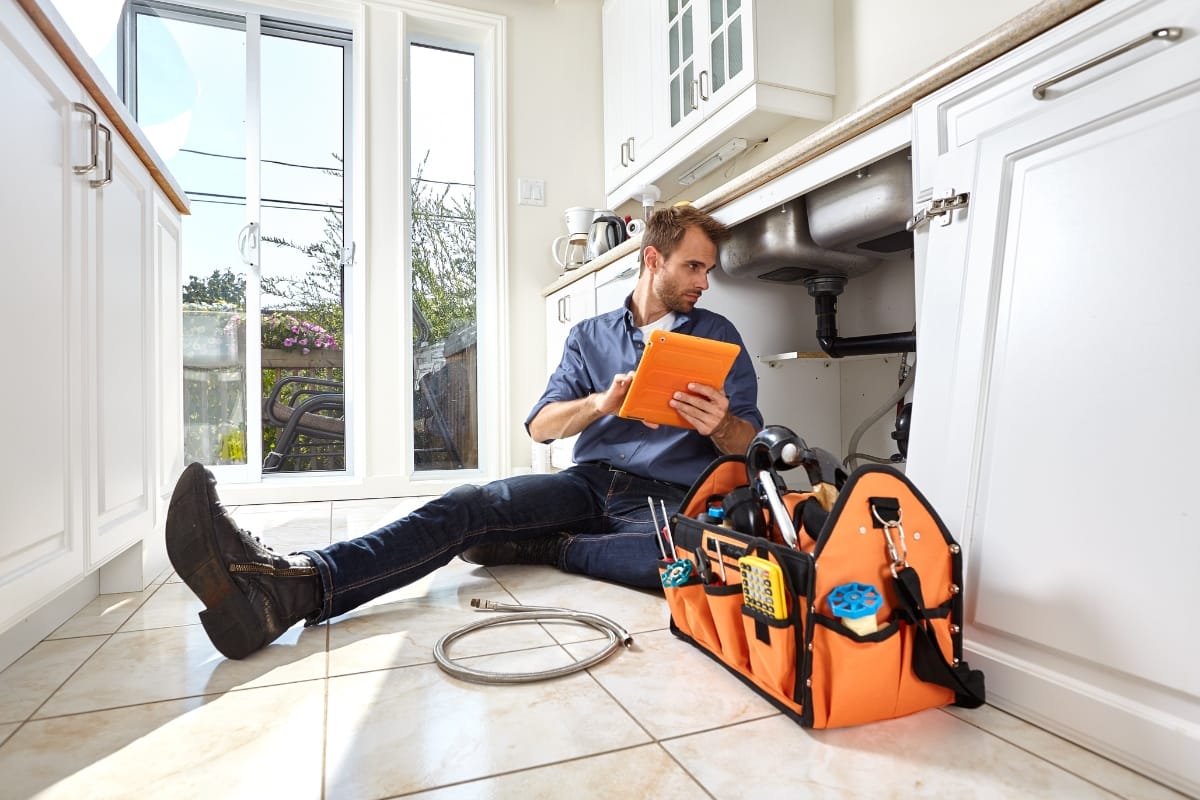
Sewer line issues can cause major headaches and expensive repairs if left unchecked. Homeowners in Georgia may notice warning signs such as slow-draining sinks and tubs, foul sewage odors in or around the house, and recurring backups in toilets or drains. Outside, you might see patches of unusually green grass or unexplained wet spots in the yard. Catching these early symptoms can prevent more extensive damage to pipes, landscaping, and even your home’s foundation.
What Causes Sewer Line Damage in Georgia Homes?
Several factors combine to threaten sewer lines in Georgia’s climate and terrain. Over time, aging clay or cast-iron pipes corrode, develop cracks, and weaken. Heavy rainfall and shifting soil can cause ground movement that further stresses old pipes. Tree roots are another common culprit: they seek out moisture and can infiltrate tiny cracks, enlarging them as roots grow. Improper disposal of grease, sanitary products, and other non-biodegradable items also contributes to blockages and pipe deterioration. In older neighborhoods where the original plumbing has been in place for decades, these pressures can lead to sudden failures if not monitored.
How Can You Identify Sewer Line Problems Early?
Homeowners should pay close attention to how water and waste move through their plumbing. Slow drainage across multiple fixtures often signals a problem deep in the system. Gurgling or bubbling sounds in drains or toilets point to air trapped behind a blockage. Persistent odors, even after cleaning drains, suggest sewage is escaping from a damaged pipe. In the yard, soggy patches, sinkholes, or a sudden swarm of flies near sewer access points indicate leaks. When these warning signs appear, scheduling a video camera inspection with a plumbing professional allows you to pinpoint cracks, blockages, and misalignments before they worsen.
What Are the Repair and Replacement Options for Sewer Lines?
Minor damage can often be fixed without tearing up the yard. Trenchless pipe lining involves coating the interior of an existing pipe with a durable resin that seals cracks and gaps. This method preserves the original pipe’s path and requires only small access holes at each end. For more extensive damage, pipe bursting may be the answer: a new pipe is pulled through the old one, fracturing it outward while laying the replacement in its place. Traditional trenching remains necessary when large sections of pipe have collapsed or when the sewer line runs beneath obstacles that trenchless methods can’t bypass. In any case, consulting with a qualified plumber ensures you choose the most cost-effective and long-lasting solution.
How Does Preventative Maintenance Help Avoid Sewer Line Issues?
The best defense against sewer line failures is proactive care. Annual or biannual inspections using high-pressure hydro-jetting clear grease, scale, and roots that accumulate over time. Installing root barriers around sewer line paths can discourage invasive tree roots. Being mindful of what goes down the drains is equally important—avoid pouring cooking oil or grease into sinks, and keep flushable wipes out of toilets. Landscape choices matter too: position large trees and shrubs away from sewer routes. By combining regular professional servicing with smart household habits, Georgia homeowners can extend the life of their sewer lines, avoid emergency repairs, and protect their property from costly damage.
How Do Local Plumbing Codes and Conditions Affect the Plumbing Problems Georgia Homes Deal With?
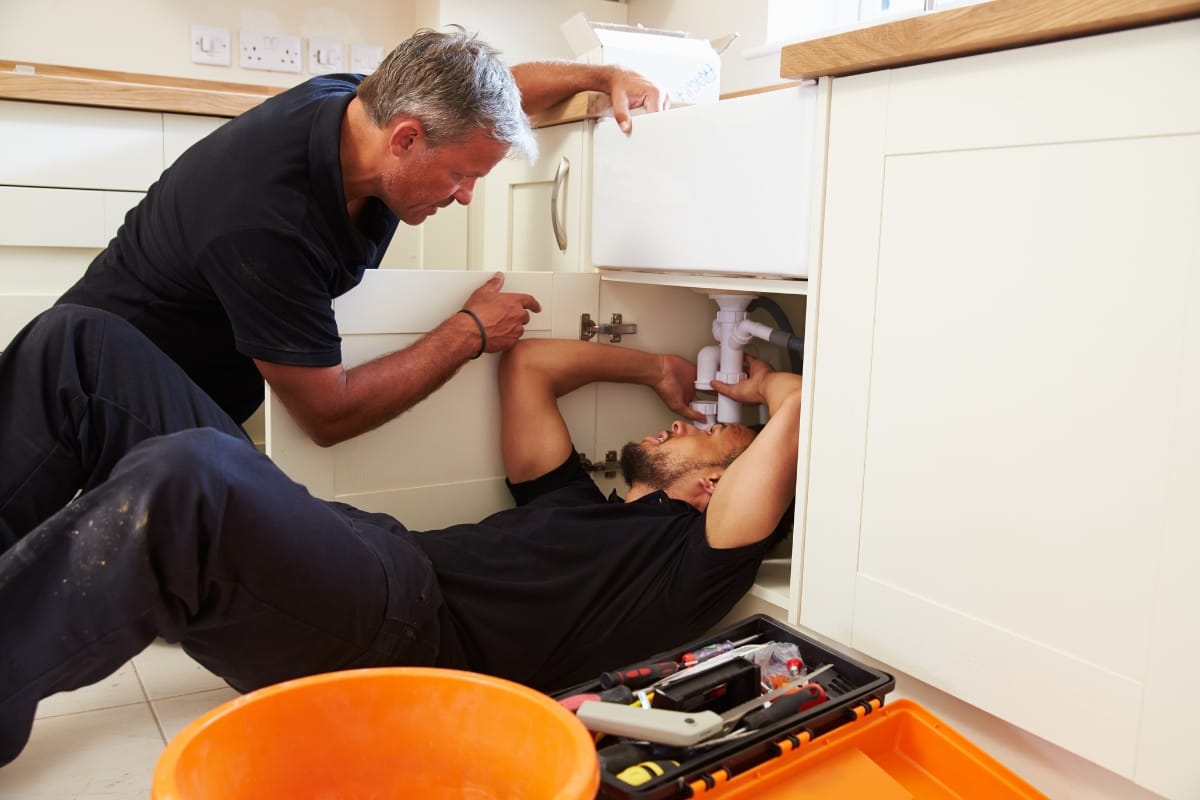
Georgia’s climate and aging infrastructure shape the plumbing challenges homeowners face. State and local codes dictate approved materials, installation standards, and maintenance practices designed to handle temperature swings, heavy rains, and hard water. In older neighborhoods, original plumbing systems often predate modern regulations, making leaks, corrosion, and blockages more common. By understanding how codes and environmental factors interact, homeowners can take steps to update their systems, improve reliability, and avoid recurring issues.
Key Georgia Plumbing Codes Homeowners Should Know
Georgia’s plumbing regulations require the use of durable piping materials such as copper, cross-linked polyethylene, or PVC approved for potable water and drainage. Fixtures must include pressure regulators in areas where municipal supply pressure exceeds safe limits, protecting appliances and preventing pipe damage. Codes also specify venting requirements to ensure proper drainage and prevent sewer gas from entering living spaces. During renovations, permits and inspections verify that all work meets these standards. Following current codes not only keeps your home safe and efficient but also helps avoid costly rework and fines.
How Georgia’s Infrastructure Shapes Plumbing Issues
Many of Georgia’s original water mains and sewer lines date back decades. Over time, pipes can weaken, joints may shift, and roots can intrude through cracks. In areas with hard water, mineral buildup inside pipes restricts flow and strains fixtures. Heavy storms can overwhelm old drainage systems, leading to basement flooding or sewer backups. Upgrading to larger-diameter sewer lines, replacing corroded water mains, and installing water-softening equipment are proven strategies for reducing disruptions. Routine maintenance—such as flushing water heaters and cleaning out sewer laterals—helps offset the effects of an aging network.
Finding Trusted Plumbing Services in Georgia Cities
When searching for a reliable plumber, prioritize local firms with strong credentials and positive reviews. Look for licensed contractors who carry insurance and offer transparent estimates. Experienced providers often bundle services into maintenance plans that include annual inspections, priority emergency response, and straightforward pricing for repairs and replacements. Reading customer feedback on sites like Google or the Better Business Bureau can help you gauge responsiveness, workmanship quality, and adherence to codes. In metro Atlanta and surrounding communities, choosing a well-established company familiar with local standards ensures that your plumbing work will pass inspections and perform reliably.
How Local Conditions Influence Repair Costs
Repair expenses reflect both the complexity of the work and regional factors. In urban areas with higher labor rates, emergency calls and weekend service can carry premium fees. Projects that require code-compliant upgrades—such as replacing undersized vents or upgrading to backflow prevention devices—add to the scope and cost. Hard water may necessitate additional treatments or pipe replacements to address mineral damage. Weather events that cause flooding or freeze-thaw cycling in pipes increase the likelihood of emergency repairs. Investing in preventative maintenance—like annual drain cleaning, pressure checks, and water-quality testing—reduces the risk of costly breakdowns and extends the service life of your plumbing system.
Frequently Asked Questions
Q: What are the early signs of a plumbing leakin a Georgia home? A: Look for damp spots on walls or ceilings, unexplained increases in water bills, musty odors, and the sound of running water when fixtures are off.
Q: How often should Georgia homeowners have their waterheaters maintained? A: Water heaters should be flushed and inspected annually. Replace the anode rod every few years to minimize sediment buildup and corrosion.
Q: When is professional sewer line inspectionnecessary? A: If you notice slow drainage, persistent odors, or backups in multiple fixtures, a professional video camera inspection is recommended.
Q: What role does Georgia’s climate play in causing plumbing issues? A: Fluctuating temperatures and high humidity cause pipes to expand and contract, leading to leaks, corrosion, and increased pressure on sewer systems.
Q: What maintenancepractices can prevent costly plumbing repairs? A: Regular inspections, drain and water heater cleaning, pressure regulation, and prompt repairs are crucial. Preventative maintenance plans can catch issues early.
Q: How does regular preventative maintenancereduce long-term plumbing repaircosts? A: It helps identify and fix small issues before they escalate, reducing water waste, energy costs, and the need for expensive emergency repairs.
Q: Are there specific plumbing codes in Georgia that influence repairstrategies? A: Yes, Georgia codes set standards for materials and installation. Compliance with these codes ensures safety and optimal performance in plumbing systems.
Final Thoughts
By taking proactive steps—like scheduling regular inspections, insulating your pipes, and addressing minor leaks before they worsen—you can keep Georgia’s most common plumbing headaches at bay and protect your home from costly water damage. And when you need expert support—whether it’s plumbing advice or ensuring your HVAC system runs flawlessly—turn to inAir Heating & Air. Give us a call at (770) 233-7777 or visit our website to complete our quick service request form, and let our team help you maintain a safe, comfortable, and efficient home.




